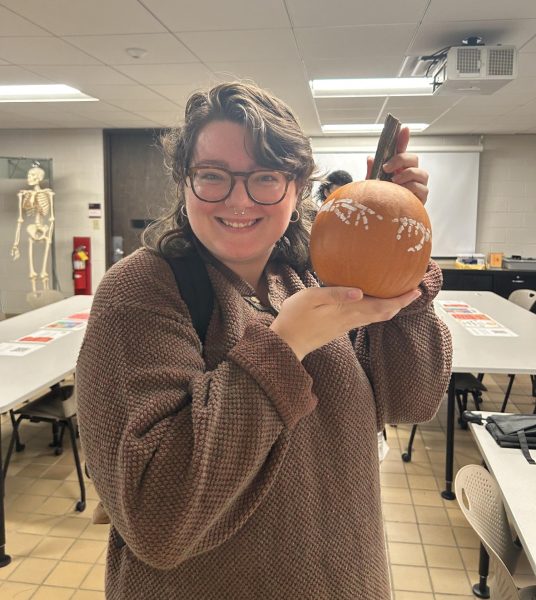“Bipolarized” gives insight into mental health struggles
October 23, 2014
Ross McKenzie’s life changed instantly when he was diagnosed with bipolar disorder at the age of 21.
He was diagnosed after having a manic breakdown and was told he will be on medication for the rest of his life.
Bipolarized is a film about McKenzie’s journey and his holistic treatments for bipolar disorder. The film was screened this past Thursday at the Burchfield Penney Art Center.
McKenzie was determined to find different methods for treatment. He was taking lithium to manage the symptoms of his mental disorder for half of his life and with the support of his family he began to detox his body to rid the natural toxin from his system.
On his journey, McKenzie began researching disorders in the book Diagnostic and Statistical Manual of Mental Disorders. He uncovered information that troubled him deeply while reading.
The Communication Department partnered with SUNY Buffalo State’s Office of Equity and Campus Diversity, Office of Student Life and the Burchfield Penney Art Center to curate the series over the course of the 2014/2015 academic school year. Ruth Goldman, a communications professor at Buffalo State, as well as one of the organizers for the film series, expressed her excitement and gratitude for everyone showing up at the screening. She said that the goal of the series was to generate conversation about diversity at Buffalo State. With more participation across campus, issues regarding diversity will be heard.
“We have tried to choose topics that will be of interest to the entire Buffalo State community and we have created panels that help link the issues raised in the films to our local community,” said Goldman.
In his research, McKenzie learned that more and more people were being labeled as having a mental disorder. Like others, he attributed the increase in mental disorder diagnosis to the publishing of Diagnostic and Statistical Manual of Mental Disorders. There have been multiple arguments made regarding the issue from both sides. Some doctors support the use of long-term medicinal treatments to deal with symptoms caused by mental disorders. Others argued that too many misdiagnoses have been made, and because of this the pharmaceutical industry is making billions of dollars.
When describing his personality on drugs such as lithium and the ‘medicinal concoction’ of treatments used for side effects, McKenzie said, “They shrink out my value, my existence, and my hope.”
McKenzie travels the world to initiate the detoxification process in an effort to change this.
He started his journey in Costa Rica, submitting himself to weeks of grueling and detoxifying treatments. Once McKenzie was home again, he participated in chelation therapy, another process used to rid the body of chemicals like lithium. Following chelation therapy, McKenzie found a spiritual doctor in Chile where he subjected himself to spiritual treatment. McKenzie and his doctors at home were shocked by the results, donning them miraculous. While most doctors in the United States and Canada were weary of spiritual healing, the results contradicted general theory.
Part of the “Beyond Boundaries: Dare to be Diverse” film series, the documentary was followed by an open panel discussion to discuss mental health issues and educate the public on bipolar disorder. The panelists consisted of Lisa Morrison-Fronckowiak, director of SUNY Buffalo State’s office of disability, Karl Shallowhorn, director of community advocacy for the Mental Health Association of Erie County and Compeer of Greater Buffalo, and Leslie Saunders, systems advocate for Western New York Living-Mental Health Peer Connection. Panelists that contributed to the discussion had mixed reviews about Ross McKenzie’s journey and process. Panelist Karl Shallowhorn, director of Buffalo State’s Office of Disability Services, and director of community advocacy for the Mental Health Association of Erie County and Compeer of Greater Buffalo acknowledged his own diagnosis of bipolar disorder. Shallowhorn said that although McKenzie’s journey is quite interesting, very few individuals have access to the treatments McKenzie subjected himself to.
“If a person wants to come off medication, it’s obviously their choice,” Shallowhorn said. “It’s a very touchy topic.”
The realm of mental illness is complex. Incorporating discussions into movie screenings proves beneficial to issues regarding diversity. “Bipolarized” is one take on diversity challenges.
Email: [email protected]



